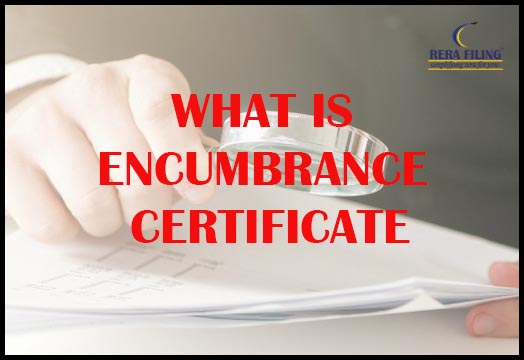What is an Encumbrance Certificate?

- General
- Author: Shreya Uppal
Highlights
-
An encumbrance refers to the charges created on the property in question, whereby it is held as a security for any debt of its owner, which has not been discharged as on a date.
-
Application is to be made to the registration office for an EC in Form 22, along with an attested copy of the proof address, details about the concerned property, its title details, and the fee applicable for obtaining the said certificate.
-
The EC will reflect only those transactions and documents that have been registered with Registrar’s office.
If a person is planning to buy a house property, he must know some of the basic documents which are required to complete your efficient buying procedure.
Some of the important documents in the Real Estate Sector are:
1. Occupancy Certificate (OC)
2. Completion Certificate (CC)
3. Encumbrance Certificate (EC)
An encumbrance refers to the charges created on the property in question, whereby it is held as a security for any debt of its owner, which has not been discharged as on a date. An Encumbrance Certificate or (EC) is a certificate of assurance that the concerned property is free from any legal or financial liability such as a mortgage or pending loan.
(a) Need for an Encumbrance Certificate
1. It is a mandatory document used in property transactions as evidence of free title/ownership.
2. It is important for those applying for a home loan or obtaining a home loan against property or when a person wants to sell or buy a property.
3. It contains all the transactions registered relating to a particular property for a certain period so that one can get to know the real state of that property.
(b) How to obtain an EC?
1. The EC for a property is provided at the Sub-Registrar’s office in which the property has been registered. Currently, computerized EC extracts are issued only in some states like Telangana, Tamil Nadu, Kerala, Gujarat, Karnataka, Puducherry, Odisha, Andhra Pradesh. In other states, one need to obtain a handwritten certificate to ascertain the real state regarding its mortgages, one has to see all the transactions regarding that particular property and follow the below-mentioned steps:
(a) Application is to be made to the registration office for an EC in Form 22, along with an attested copy of the proof address, details about the concerned property, its title details, and the fee applicable for obtaining the said certificate.
(b) The officer will inspect the indexes for details in the specified period and usually within 15 to 30 days from the date of application an EC will be issued.
(c) An EC is issued in two forms- Form No. 15 and 16. If the property does not have any encumbrance during the period for which it is asked, Form No. 16 will be issued which is a Nil Encumbrance Certificate (NEC).
(d) If the property has any transactions relating to encumbrance during the asked period, then Form no. 15 shall be issued revealing the documents registered with respect to the property, nature of the encumbrance such as gift, partition, lease and the mortgage, the parties involved, the registered number of the document.
Note: The EC will reflect only those transactions and documents that have been registered with
Registrar’s office.
Also Read: What is Land Title Search Report?
(c) EC should not be confused with CC and OC
Obviously, when there are so many important documents involved, one needs to have proper clarity between all of them.
A CC (Completion Certificate) is issued by the local authority upon the completion of construction of a building in compliance with building plan and other regulations. Once a CC is obtained, the local municipal authorities issue an OC or Occupancy Certificate as a declaration that it is now safe to occupy the building and allowing for the same.
For Project Registration, Click here.
Tags: What is Land Title Search Report?
Latest Blogs
- UP RERA Makes Agent Training Mandatory: Complete Guide to the New Training & Certification Framework (2026)
- Is the Builder Allowed to Change the Layout? RERA Rules Explained
- Form-7 Annual Audit Report: A Complete Guide for Promoters | RERA Filing
- What Happens If a Builder Violates RERA? Complete Penalty Breakdown
- What to Check Before Booking a Flat – The Ultimate RERA Checklist
- Post-Project RERA Registration Compliances – A Detailed Guide
- How to Verify RERA Registration Online
- Key Clauses to Look for in a RERA Compliant Sale Agreement
- RERA FAQs for First-Time Homebuyers
- Key Real Estate Laws Every Indian Buyer Should Know
Copyright © 2026 RERA Filing. All rights reserved.

 Rera Act
Rera Act
 Maharashtra
Maharashtra
 Karnataka
Karnataka
 Telangana
Telangana
 Andhra Pradesh
Andhra Pradesh
 Delhi
Delhi
 Uttar Pradesh
Uttar Pradesh
 Haryana
Haryana
 Gujarat
Gujarat
 Bihar
Bihar